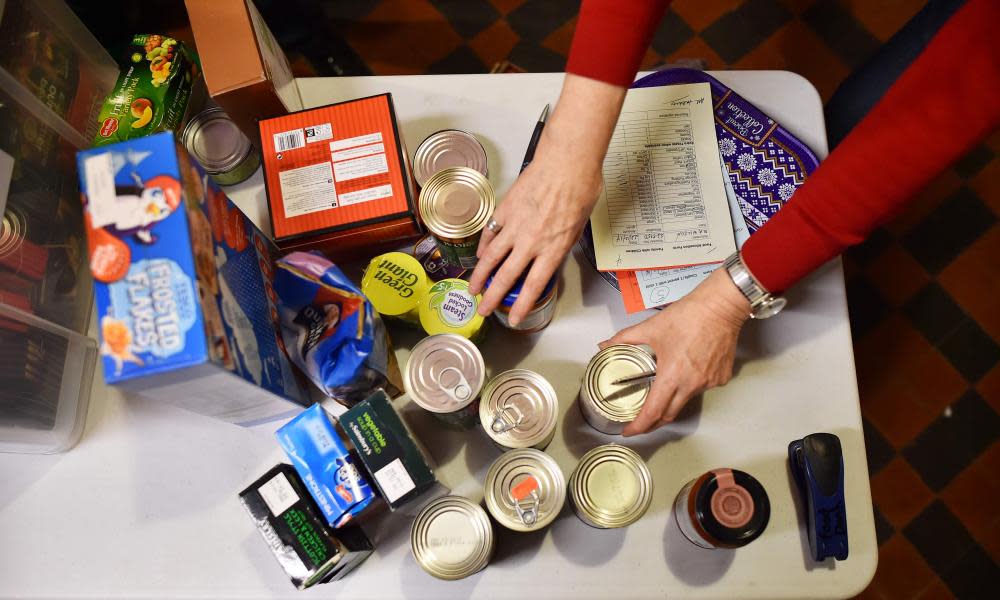The Guardian view on universal credit: losing credit | Editorial

Universal credit (UC) is a technocratic solution to a human problem. Rolling up six benefits into one payment in a way that mirrors a monthly pay cheque appears unimpeachably sensible – on paper. The system is still supported in principle across the parties. But in practice too many claimants do not fit into its organised parameters. They come with historic debts, or without any savings, or knocked back by the unexpected loss of their job or a split from their partner. For all its flaws, the old system was baggier and more accommodating.
And there is a long history of new benefits coming laden with unintended consequences. The former work and pensions secretary Iain Duncan Smith, who designed UC, at least insisted that his system came in slowly, with built-in “firebreaks” to assess the success of implementation and the effectiveness of its design. But his successors have lost patience with testing, learning and rectifying, and now they are refusing to pause.
There is a kind of bizarre self-parody in a government that, when faced with soaring debt and rent arrears, concedes to Jeremy Corbyn’s call and makes the helpline free. David Gauke, the DWP secretary, made the announcement to MPs hours before a Commons debate that might have led to a government defeat if the Tories had not backed away from confrontation. It removes a grave injustice; but in the face of the human and political damage being wreaked by the decision to press ahead with the rollout, this is fiddling on a heroic scale.
The problems with UC are now familiar: the built-in six-week delay before any payment is received means many claimants run up large debts. The Trussell Trust, an informal indicator of need, notes that demand for food parcels rises on average 16% where UC is rolled out, which is why the Labour MP Frank Field can warn that his area food bank is anticipating needing an extra 15 tonnes of supplies. Mr Gauke believes that promoting advance payments will mean that people are not thrown back on charity. But no more than 40% of the likely future entitlement can be claimed, and it must be repaid within the year. In an example of the clash between theory and practice, in some circumstances advances cannot be applied for face to face. Imagine, sitting opposite an adviser, being told that you must find a phone to ask for an advance – when IT malfunction and bureaucratic failure suggest that one in three new claimants waits more than six weeks, and some wait for more than three months. The delay is meant to be part of the process of preparing people for work: claimants who can’t manage are intended to get extra support with budgeting. But you can’t budget with nothing, nor with not enough.
And the problems don’t go away when the credit is paid. In Scotland, the administration has used its new powers over welfare to pay UC every two weeks rather than every four. It also allows landlords to receive rent directly from the benefits agency rather than the tenant. It is a practical way – although still not completely adequate – of easing the problems of rent arrears that escalate wherever the system has been introduced. But it is also an erosion of the founding principle of using the credit to mirror a pay cheque; and that may be one reason why the DWP is so adamantly refusing to bow to pressure from across the Commons to pause for a review.
There is another reason, too: the DWP budget has to deliver billions of pounds of cuts between now and 2020. These cuts will leave a family of four on UC as much as £2,000 worse off. They are turning an ambitious but worthwhile reform into what one MP called an act of deliberate cruelty. The government is fixed on a course of action that, by the next so-called firebreak in January, will have pitched hundreds of unsuspecting citizens who find themselves in need into the bleak world of Daniel Blake. It takes a government inured to self-harm to pursue a policy that will leave families to celebrate Christmas on the contents of a food parcel.

 Yahoo News
Yahoo News 
